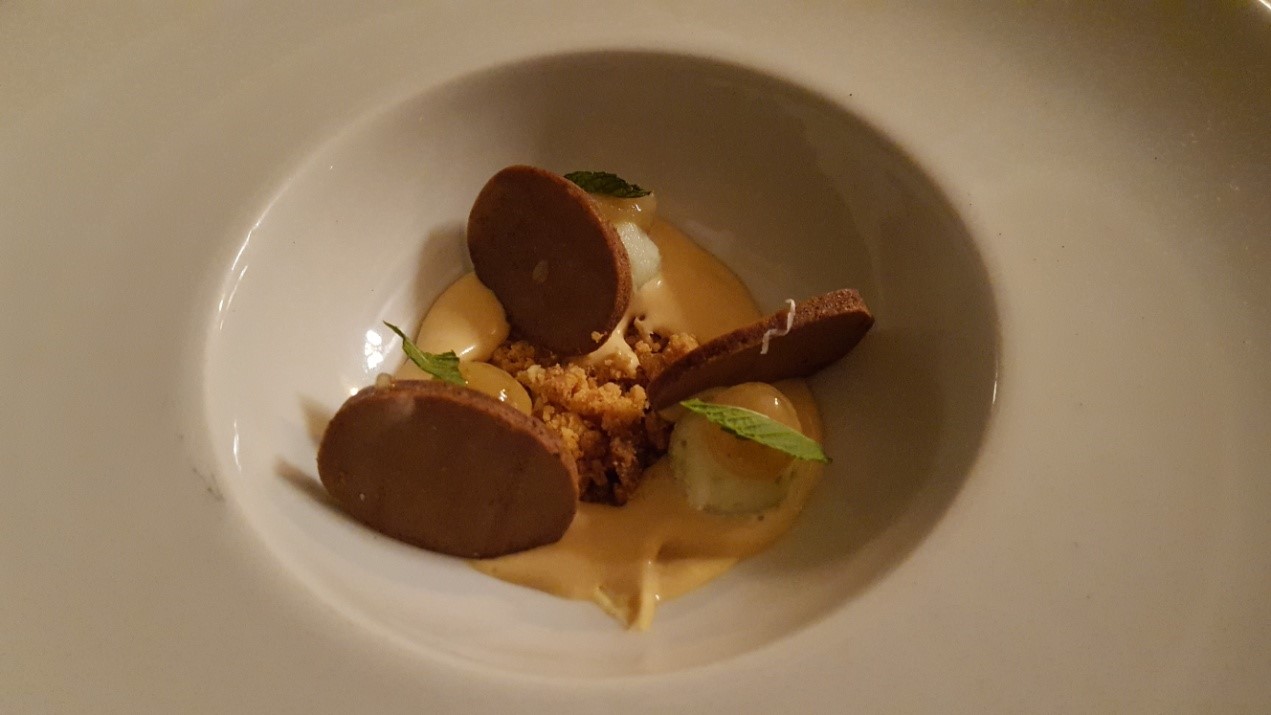This week’s piece has been written for Sardatur by Andrew Morris- Founder, writer and Operations Director at Great Escapations. He and his colleague Mark Melling- Founder and Creative Director at Great Escapations, visited Oristano in Sardinia and stayed at our property the Is Benas Country Lodge, below he details his culinary experience at the lodge:
“If you’ve been on a Sardatur holiday before, you’ll probably know already how important a role food plays in Sardinia and throughout Italy. But I wonder if you will have experienced gastronomy quite like what is served up at Is Benas Country Lodge in Oristano, the wild and still relatively unspoiled province on Sardinia’s central west coast.”
food at is benas
Food is the beating heart of Is Benas. I think it’s fair to say that the Lodge punches way above its culinary weight, the dishes coming out of the kitchen every evening a constant surprise and delight, surpassing the quality of many so-called gourmet restaurants and 5* hotels.
Eat in the candle-lit Carduus Restaurant, al fresco on warm nights either on the veranda or, for an even more romantic occasion, on the new raised terrazzo – or in the intimate dining room inside.
The 5-course tasting menu you will enjoy every evening is an adventurous gastronomic journey. Sardo Chef Nico and his brigade use only local ingredients to create food that, whilst rooted in Sardinian traditions, is a thrilling innovative reinterpretation.
Let’s hear from Nico himself about his own experiences and philosophy:
Sono un ragazzo di Oristano, quindi della provincia. Dopo una serie di viaggi all’estero come dicevo, vengo da Oristano, quindi sono un ragazzo della zona. Dopo anni di esperienze passate in giro per l’Italia e l’Europa siamo tornati a casa. Siamo un team di ragazzi giovani dove proviamo a reinterpretare la tradizione sarda. Proviamo perché la tradizione la reputiamo molto seria quindi è anche brutto mancarle di rispetto. Cerchiamo appunto di studiarla e portarla avanti e cercare di crearne una nostra.”
“I am a boy from Oristano, from the province. After a series of trips abroad … as I said, I come from Oristano, so I’m a local guy. After years of experience spent around Italy and Europe we came back home. We are a young team and we try to reinterpret the Sardinian tradition. We try because tradition is very serious, so it’s bad to miss it. We try to study it and carry it forward and try to create one of our own.”
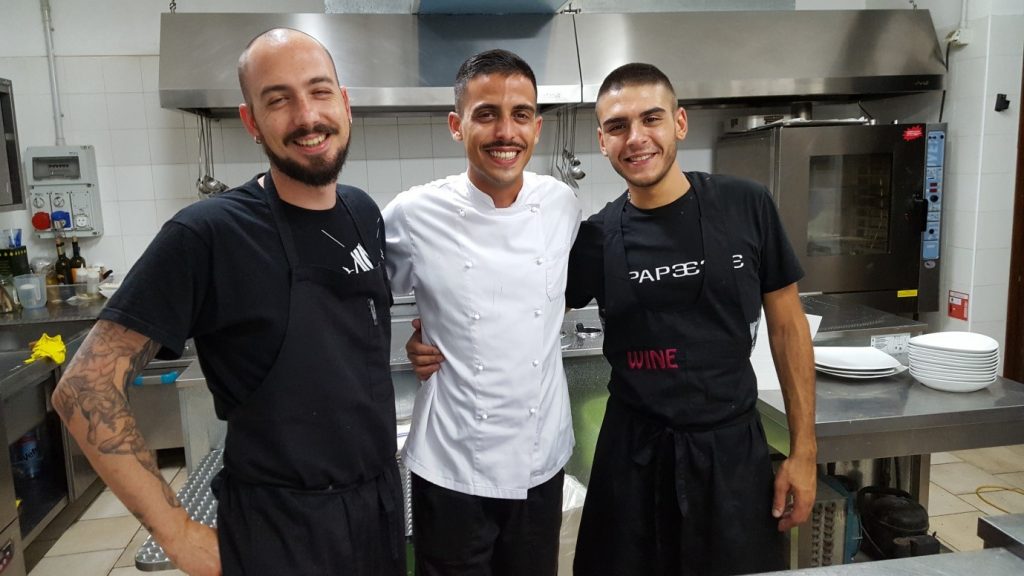
Ho avuto l’onore di conoscere chef abbastanza famosi e importanti a livello mondiale. Non c’è uno in particolare che mi ha dato un’impronta culinaria ma un’impronta organizzativa. Da ogni posto in cui vai, ogni posto che visiti hai sempre qualcosa di nuovo da imparare. Questa è la base per questo lavoro: la condivisione. Quindi la condivisione di conoscenze porta alla crescita.”
I had the honour of knowing chefs quite famous and important on a global scale. There is not one in particular that has given me a culinary impression but an organizational impression. From wherever you go, every place you visit has something new to learn. This is the basis for this work: sharing. So knowledge sharing leads to growth.”
Noi la definiamo la cucina sarda-contemporanea. Ripeto, non è del tutto tradizionale, ma partiamo da ricette tradizionali quindi prendiamo spunto dal nostro territorio che può essere un ingrediente, un colore, una forma, un fiore, qualsiasi cosa che sia appartenente al territorio e proviamo a rielaborarla creando qualcosa di nuovo e di diverso.”
We call it Sardinian-contemporary cuisine. Again, it’s not entirely traditional, but we start from traditional recipes, so let’s start from our territory that can be an ingredient, a colour, a form, a flower, anything that belongs to the territory and we try to rework it by creating something new and different.”
Cerchiamo solo di utilizzare solo prodotti locali delle piccole imprese in modo tale da valorizzare appunto i piccoli imprenditori, piccoli artigiani che comunque hanno bisogno di sostegno da parte di noi professionisti. Un sostegno che va dato sia per etica sia perché comunque ti danno un prodotto sempre al top e noi dobbiamo lavorare per loro. Noi lavoriamo per gli artigiani e il nostro dovere è valorizzare ciò che fanno.”
We only try to use only local products of small businesses in order to value small entrepreneurs, small craftsmen who still need support from our professionals. A support that is given both by ethics and because they always give you a product at the top and we have to work for them. We work for artisans and our duty is to value what they do.”
La nostra filosofia di cucina è molto semplice. È una cucina che ha molte influenze da tutte le nostre esperienze. Quindi potrebbe essere una tecnica che arriva dalla Spagna, dal Nord Europa, dal Nord e Sud Italia. Sono tecniche che cerchiamo di accumunare alla nostra terra per dare un qualcosa di diverso. Non siamo così presuntuosi da voler dire di creare un qualcosa di nuovo.”
Our philosophy of cooking is very simple. It’s a kitchen that has many influences from all of our experiences. So it could be a technique coming from Spain, North Europe, North and South Italy. These are techniques that we try to accumulate to our land to give something different. We are not so presumptuous as to create something new.”
È una cucina pulita. Una cucina, come dicevo, legata tanto al territorio però cerchiamo di scomporla alleggerendola dando gusti più puliti, coprendo meno con le salse però utilizzando le stesse per dare una spinta in più al piatto e non coprendo l’ingrediente. Cerchiamo le consistenze giuste, cerchiamo l’appeal del cibo: un cibo che sia appetibile.
“It’s a clean cuisine. A cuisine, as I said, is so much tied to the area, but we try to break it down, lightening it with cleaner tastes, covering less with the sauces but using the same to give a boost to the dish and not covering the ingredient. We look for the right consistency, we seek the appeal of food: a food that is appetizing.”
What comes out of Nico’s kitchen at Is Benas is passion on every plate, based on his principles and philosophy. Here are just a few examples:
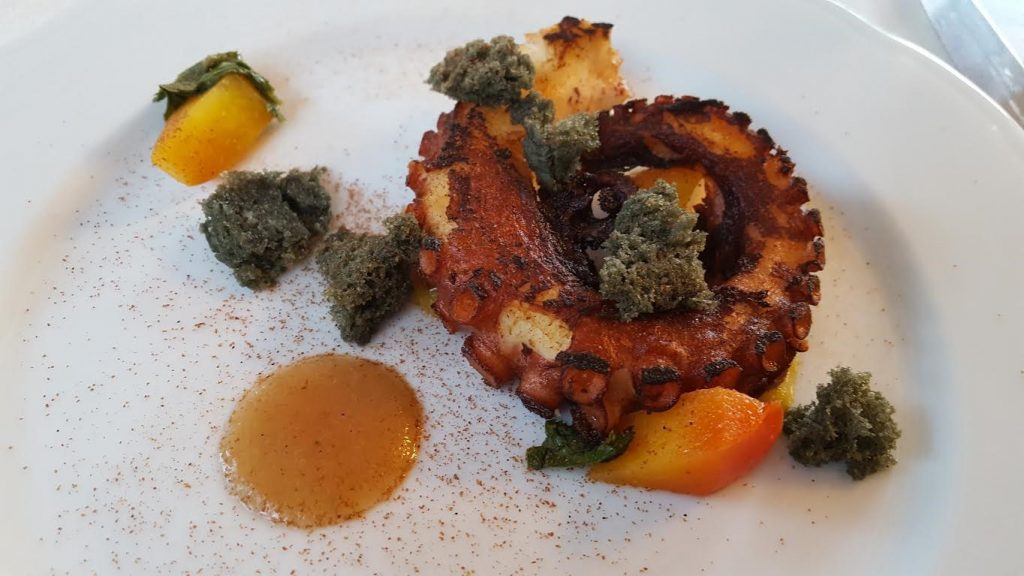
Polpe e pesche – octopus and peach
Risotto all’estratto di finocchieto, cozze e polvere di pomodoro risotto in wild fennel stock, mussels and tomato powder
Tonno marinato, hummus di ceci e aglio nero marinated tuna fish, chickpea hummus and black garlic
Toffee e pere toffee and pears (with fresh mint leaves)
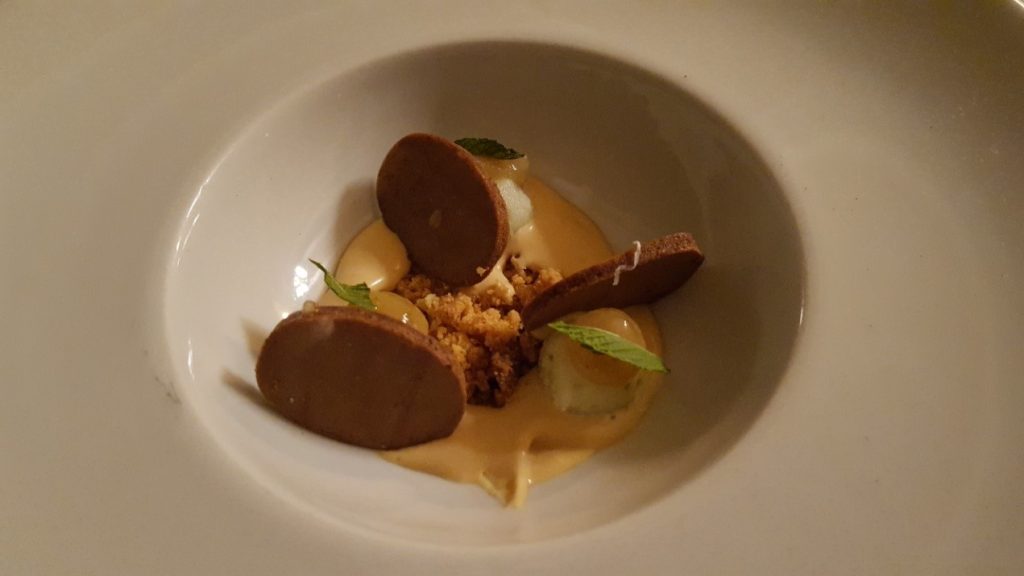
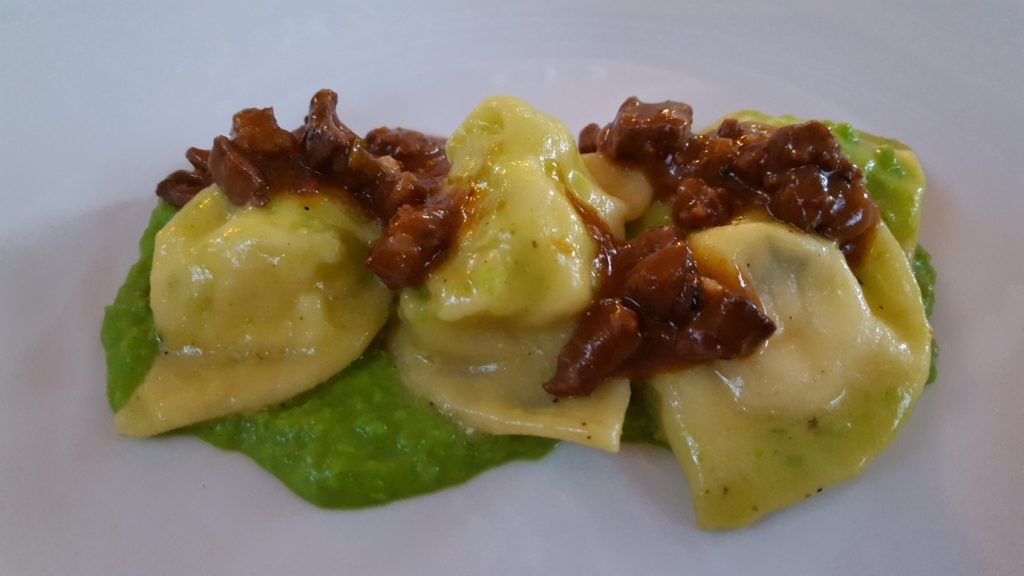 Carpaccio di manzo con ricotta & pecorino – Beef carpaccio with ricotta and pecorino
Carpaccio di manzo con ricotta & pecorino – Beef carpaccio with ricotta and pecorino
Ravioli in bue demi-glace e crema di piselli – Ravioli in ox demi-glace and pea cream
Pancetta di maiale con spinaci e prugne – Pork belly with spinach & plums
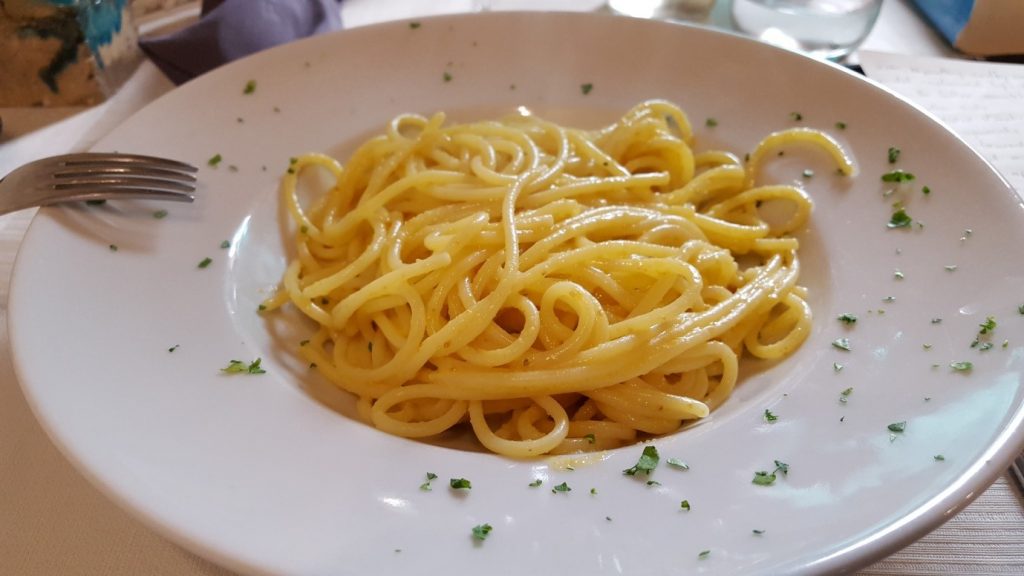
FOOD outside IS BENAS
After such gastronomic dinners at Is Benas Country Lodge, and generous healthy breakfasts, you may not need much food outside the Lodge gates.
But be assured that wherever you are exploring in or around Oristano province, you will not go hungry.
Spaghetti con bottarga is a local speciality, a simple but exceptional dish of pasta and mullet roe. Do NOT add cheese, unless you want to upset the local people!
Fregula (fregola) is the Sardinian equivalent of couscous, typically toasted semolina dough balls and often served with clams.
Or try malloreddus, a gnocchi style pasta cooked with saffron and a tomato sauce.
Su Porcheddu roast suckling pig is a prized dish….but not one for vegetarians. Typically spit-roasted over a log fire for several hours, and infused with the aromatic flavour of local herbs and shrubs, the triumphant result is often used for family celebrations.
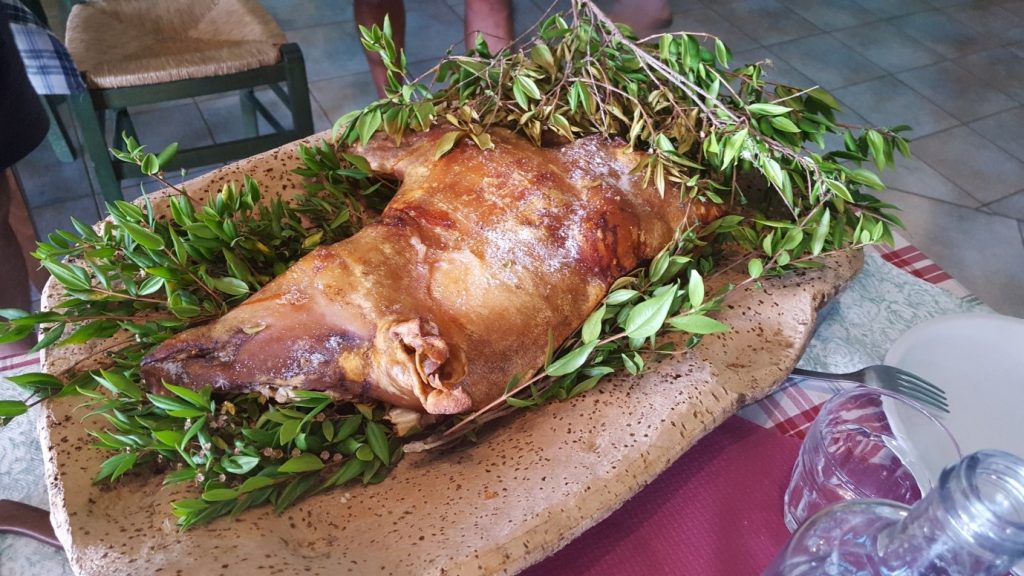
But even in a trattoria in a small village, you’re likely to enjoy simple food, from well-prepared local ingredients and served with a Sardo smile.
Buon appetito!
JUNE, 2017
ANDREW MORRIS
